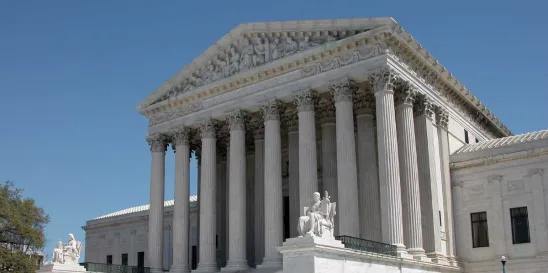The U.S. Supreme Court is set to decide whether Title VII of the Civil Rights Act of 1964 bars discrimination in employment transfer decisions if at the transfer decision did not cause a significant disadvantage. Below is a brief preview of Muldrow v. City of St. Louis, Mo., No. 22-193, the potential implications, and what employers should be aware of in advance of the decision.
A sergeant with the City of St. Louis Police Department filed a lawsuit against the Department, claiming that her involuntary transfer out of the Department's Intelligence Unit was sex discrimination. Muldrow's pay and rank remained the same, she continued to be responsible for investigating important crimes (e.g., homicides), she was given a supervisory role, and her future career prospects were not harmed by the transfer. Despite the similarities between the two roles, the sergeant argued that the transfer in and of itself was an adverse employment action, regardless of whether her earnings, benefits, or future career prospects were diminished or caused other materially significant harm. Both the district court and the Eighth Circuit Court of Appeals disagreed and found that Title VII barred only adverse employment actions that resulted in a materially significant disadvantage for the employee. Specifically, the Eighth Circuit held that "absent proof of harm resulting from the reassignment, there was no adverse action."
The Supreme Court's decision in this case could provide clarity for employers on what level of harm an employment decision must cause its employee for the decision to constitute and adverse action under Title VII. However, the potential implications of this case go well beyond a simple clarification. The Muldrow case also has the potential to impact other workplace actions or decisions, including performance issues and evaluations, performance improvement plans (or PIPs), disciplinary actions, work assignment, attendance, travel decisions and other actions outside of demotions or terminations.
In addition, employers should be aware of the potential implications that this decision may have for corporate DEI initiatives. In a statement, the EEOC Commissioner, Andrea Lucas recently identified a number of DEI initiatives that Muldrow could implicate—“from providing race-restricted access to mentoring, sponsorship, or training programs; to selecting interviewees partially due to diverse candidate slate policies; to tying executive or employee compensation to the company achieving certain demographic targets; to offering race-restricted diversity internship programs or accelerated interview processes, sometimes paired with euphemistic diversity ‘scholarships’ that effectively provide more compensation for ‘diverse’ summer interns.”
No date for oral argument has been scheduled yet. In advance of the decision, however, employers should consider whether HR policies, programs and/or trainings will need to be expanded and/or changed, and they should be further mindful of this matter’s impact on their DEI programs. Employers are also advised to consult with labor and employment counsel.



 />i
/>i

